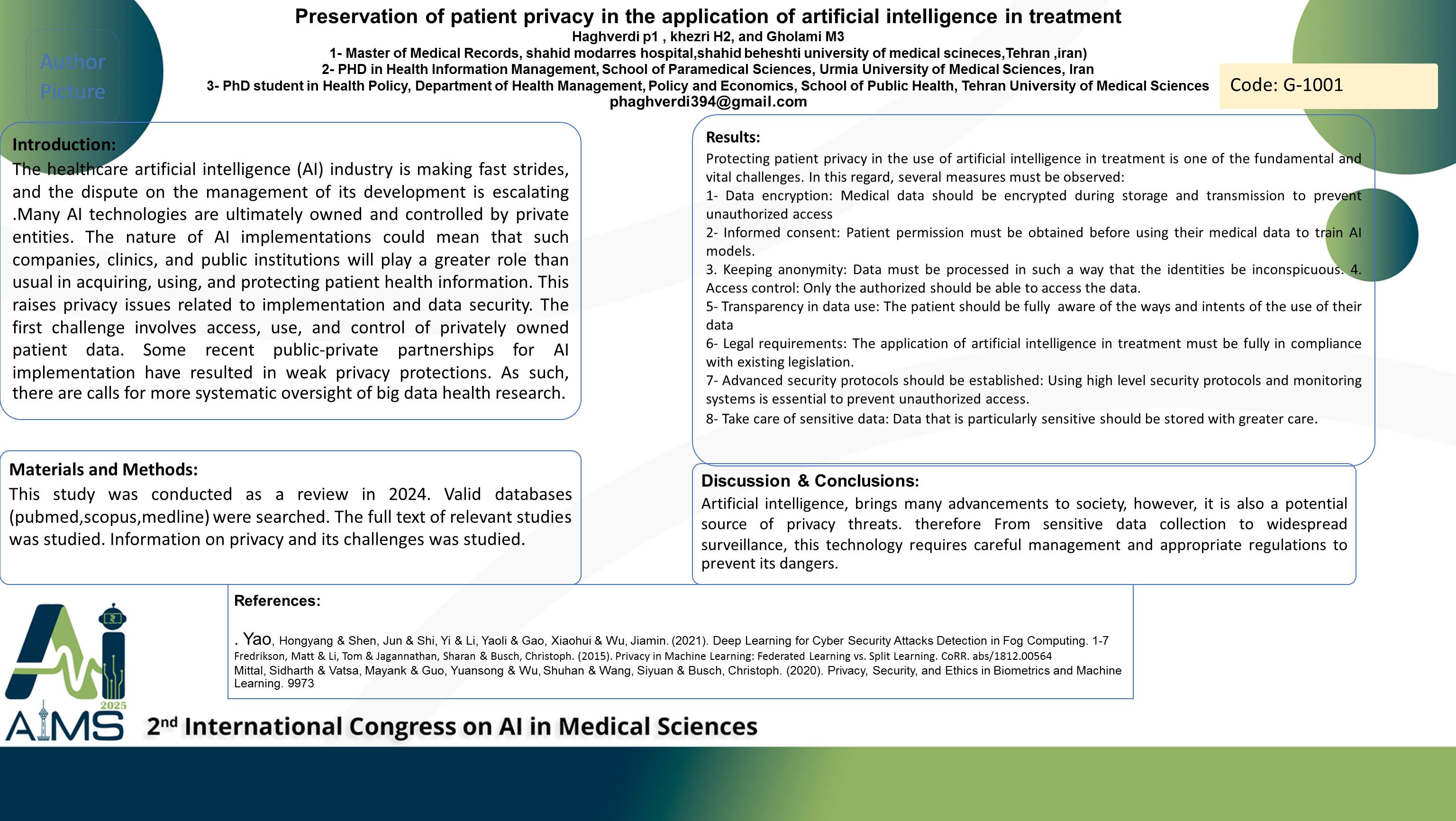حفظ حریم خصوصی بیمار در به کارگیری هوش مصنوعی در درمان
کد: G-1302
نویسندگان: Pegah Haghverdi * ℗, Hero Khezri, Mahbobeh Gholami
زمان بندی: زمان بندی نشده!
برچسب: سیاست گذاری، قانون گذاری و مدیریت سلامت در حوزه هوش مصنوعی
دانلود: دانلود پوستر
خلاصه مقاله:
خلاصه مقاله
Background and aims: The healthcare artificial intelligence (AI) industry is making fast strides, and the dispute on the management of its development is escalating .Many AI technologies are ultimately owned and controlled by private entities. The nature of AI implementations could mean that such companies, clinics, and public institutions will play a greater role than usual in acquiring, using, and protecting patient health information. This raises privacy issues related to implementation and data security. The first challenge involves access, use, and control of privately owned patient data. Some recent public-private partnerships for AI implementation have resulted in weak privacy protections.therefore, there are calls for more systematic oversight of big data health research. Method: This study was conducted as a review in 2024. Valid databases (pubmed,scopus,medline) were searched. The full text of relevant studies was studied. Information on privacy and its challenges was studied. Results: Protecting patient privacy in the use of artificial intelligence in treatment is one of the fundamental and vital challenges. In this regard, several measures must be observed: 1- Data encryption: Medical data should be encrypted during storage and transmission to prevent unauthorized access 2- Informed consent: Patient permission must be obtained before using their medical data to train AI models. 3. Keeping anonymity: Data must be processed in such a way that the identities be inconspicuous. 4. Access control: Only the authorized should be able to access the data. 5- Transparency in data use: The patient should be aware of the ways and intents of the use of their data 6- Legal requirements: The application of artificial intelligence in treatment must be fully in compliance with existing legislation. 7- Advanced security protocols should be established: Using high level security protocols and monitoring systems is essential to prevent unauthorized access. 8- Take care of sensitive data: Data that is particularly sensitive should be stored with greater care. Conclusion: Artificial intelligence, brings many advancements to society, however, it is also a potential source of privacy threats. From sensitive data collection to widespread surveillance, this technology requires careful management and appropriate regulations to prevent its dangers.
کلمات کلیدی
Artificial intelligence, patient privacy, Data Protection
